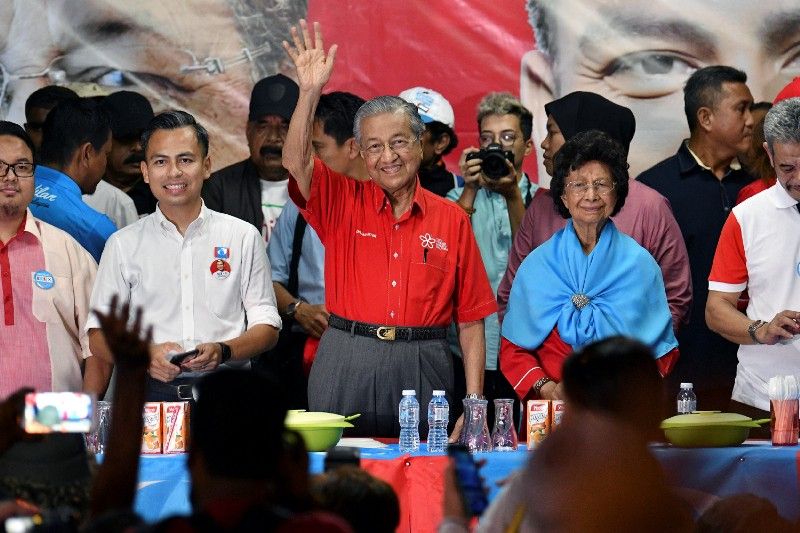May 08, 2018
It’s not often that you look to a 92-year old former strongman as the best hope for positive political change in a corrupted system, but that’s exactly what’s happening right now in Malaysia.
As the country heads for general elections tomorrow, the popular former Prime Minister Mahathir Mohamad, who was born when Calvin Coolidge was the US president, is leading the opposition against the current prime minister, Najib Razak, who is fighting to hold onto power amid a massive corruption scandal and flagging popular support.
Mahathir, as a reminder, ruled Malaysia from 1981 until 2003 with a strong hand — jailing opponents, cracking down on the press, and railing against the West. He oversaw an economic miracle in the country, and he famously defied the IMF in 1998, imposing capital controls rather than accepting austerity measures during the Asian financial crisis — the IMF later admitted that he’d gotten it right.
Now after several years out of the political limelight, he is partnering with people he once jailed, taking on a man who was once his protégé, and seeking to knock his old party out of power for the first time since Malaysia’s independence.
Most observers think Najib will squeak out a victory — lavish spending, nationalist rhetoric, and jerrymandering will all help. But Mahathir is set to give him a stiff challenge. We’ll wait for the results on Thursday morning. Irrespective of the outcome, Malaysians seeking a new generation of leaders may still have to wait a bit longer than that.
More For You
Mastercard Economic Institute's Outlook 2026 explores the forces redefining global business. Tariffs, technology, and transformation define an adaptive economy for the year ahead. Expect moderate growth amid easing inflation, evolving fiscal policies, and rapid AI adoption, driving productivity. Digital transformation for SMEs and shifts in trade and consumer behavior will shape strategies worldwide. Stay ahead with insights to help navigate complexity and seize emerging opportunities. Learn more here.
Most Popular
Think you know what's going on around the world? Here's your chance to prove it.
Miami Mayor-elect Eileen Higgins points as she thanks her staff and supporters on the night of the general election, on Tuesday, Nov. 4, 2025.
Carl Juste/Miami Herald/TNS/ABACAPRESS.COM
A Democrat won Miami’s mayoral race for the first time in nearly 30 years. The Republican defeat will ring some alarms for the party – and their support among Latino voters.
Women work in the plastic container assembly area inside the El Oso shoe polish factory, located in Mexico City, Mexico, in its new facilities, after officers from the Secretariat of Citizen Security and staff from the Benito Juarez mayor's office arbitrarily and violently remove their supplies, raw materials, machinery, and work tools on January 17 of this year following a coordinated operation stemming from a private dispute. On August 27, 2025.
Photo by Gerardo Vieyra/NurPhoto
50: Mexico’s President Claudia Sheinbaum is taking a page out of US President Donald Trump’s book, implementing up to a 50% tariff on more than 1,400 products in a bid to boost domestic production.
© 2025 GZERO Media. All Rights Reserved | A Eurasia Group media company.
